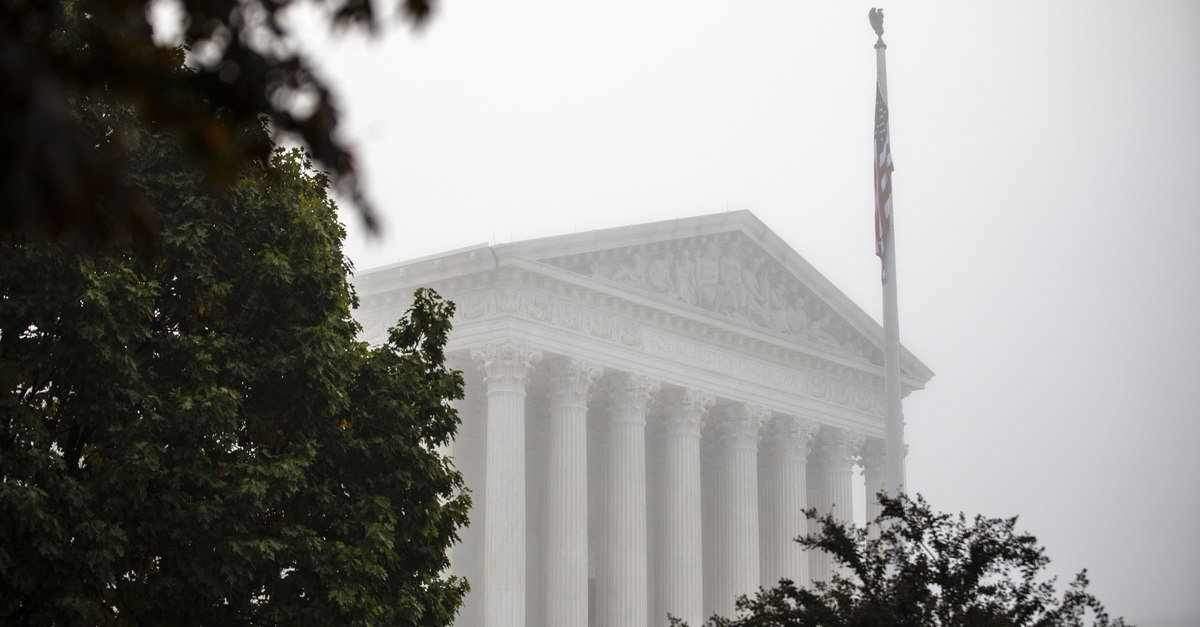
Twenty states, two U.S. territories, and Washington, D.C. implored the U.S. Supreme Court on Thursday to reject a long-shot lawsuit filed by the state of Texas which asked the justices to throw out the election results in four states where President Donald Trump lost to Joe Biden. Earlier this week, Texas Attorney General Ken Paxton (R) filed a motion for leave to file a bill of complaint against Pennsylvania, Georgia, Michigan, and Wisconsin, repurposing the Trump campaign’s ineffectual legal arguments to claim that “electoral irregularities” prevented knowing who “legitimately” won the 2020 election.
Paxton’s lawsuit, which was later endorsed by 17 other Republican attorneys general, was filed with the high court, as it is the exclusive venue for actions between two or more states.
In a 29-page amicus brief filed by D.C. Attorney General Karl Racine (D), blue states argued that Texas drastically misinterprets the Constitution in such a manner that it would effectively undermine the most basic principles of federalism in American governance.
“Texas and its amici, including Missouri and other states, contend that by interpreting or implementing state law, state officials and state courts have ‘encroached upon the plenary authority of [Pennsylvania, Michigan, Georgia, and Wisconsin’s] respective legislatures over the conduct of the Presidential election,’ thereby violating the Electors Clause,” the brief stated. “That reading of the Electors Clause, however, would upend a century’s worth of this Court’s precedent; render unconstitutional routine and critical election administration; and supplant states’ sovereign power to structure their own systems of government. Indeed, by demanding this Court police state interpretation of state law, Texas’s theory of the Electors Clause would reorder the Constitution and undermine our federalist system.”
The AGs further asserted that such an interpretation would also “reverse the roles” of state and federal courts, leaving the federal judiciary as the final arbiter of state election laws and further weaken state autonomy.
Factually, the brief emphasized that allegations of widespread voter fraud have no basis in reality, noting that election and security experts have repeatedly declared that there was no evidence of impropriety in any of the states’ election tabulations. The brief even quoted former head of the U.S. government’s cybersecurity agency Chris Krebs calling the election “the most secure in American history.” President Trump fired Krebs days after making that statement.
Additionally, the AGs noted that Texas’s legal claims have already been litigated and defeated several times over in multiple different forums, leaving no reason for the justices to take the extraordinary measure of exercising the Court’s original jurisdiction to hear the case directly.
The District of Columbia was joined in the filing by the States and territories of California, Colorado, Connecticut, Delaware, Guam, Hawaii, Illinois, Maine, Maryland, Massachusetts, Minnesota, Nevada, New Jersey, New Mexico, New York, North Carolina, Oregon, Rhode Island, Vermont, Virginia, U.S. Virgin Islands, and Washington. President Trump lost the popular vote in all of these states except for North Carolina.
Read the full brief below:
DC Motion_Texas v. Pennsylvania by Law&Crime on Scribd
[image via Samuel Corum/Getty Images]